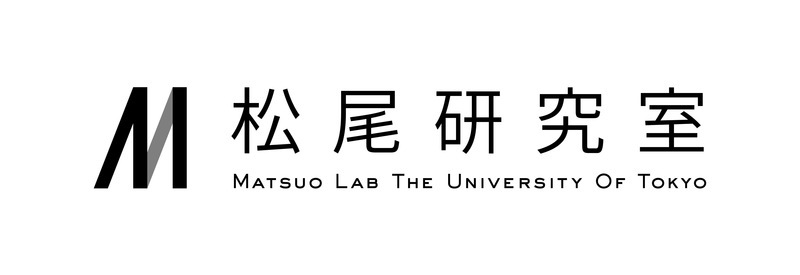The University of Tokyo Global Consumer Intelligence (GCI) is a program run by the University of Tokyo's Yutaka Matsuo Laboratory, which conducts research on AI. It is one of the largest data science courses in Japan, with approximately 700 students taking each course. (Archived videos are also available.) There are also students from universities and graduate schools other than UTokyo, as well as from overseas enrolled in the program, and alumni are active in a variety of fields, including starting their own businesses.The course is widely known for its value through reviews and referrals from friends. However, more than half of the students do not complete the course because it is necessary to fulfill the requirements for completion, as described below. As stated on the official website, "Consumer intelligence is the ability to comprehensively understand consumers through data analysis," the program provides practical data science (data analytics/analysis, fundamentals of machine learning, etc.) and business skills for social implementation (business hypothesis testing process, marketing, etc.). After acquiring these skills, students interested in starting their own businesses will participate in "Entrepreneurship Quest", hosted by the Matsuo Institute, where they will practice what they have learned through collaborative research and hypothesis testing of their entrepreneurial ideas. Outstanding graduates will also be given the opportunity to be involved in the planning and management of Matsuo Institute courses as teaching assistants, or lecturers.

GCI (Matsuo Lab) (English)
Students only
Hosted by UTokyo
2023.7.5
The largest online data science and marketing program in Japan, run by the Matsuo Lab, a AI-researching Lab.
Table of Contents
Basic Information
| Official Name |
The University of Tokyo Chair for Global Consumer Intelligence |
|---|---|
| Official Website | |
| Category |
Data Science, Business |
| Eligibility |
Mainly undergraduate + graduate students (Students from all over the world are eligible for this program, and there are also middle and high school students enrolled as participants) |
| Duration |
Approximately 4 months in S semester / A semester, respectively |
| Year of the Etablishment |
2014 |
| Venue |
Online |
| How to Apply |
Apply through the application form on the official website |
| Selection |
Yes (usually in early April / application deadline in early September) |
| Fee |
Free of charge |
Past Examples
The following is a partial list of examples of start-ups by GCI alumni, many of which are AI-related venture companies. In addition, there are cases where alumni have started their own businesses, or where alumni joined the program a few years later.
Case 1) AKARI Inc. (Japanese website)
: A company that supports digital transformation, especially in the construction industry, using AI algorithms.
Case 2) Algoage, Inc (Japanese website)
:A company that uses deep learning and other artificial intelligence technologies to support a wide range of corporate projects using AI.
Case 3) DeepX, Inc.
:A company that aims to automate all kinds of machines and field operations by using world models and other technologies.
Case 4) Pan House, Inc. (Japanese website)
:A company that supports cutting-edge corporate initiatives by using edge AI and other technologies to analyze the behavior of people in videos and track objects.
Case 5) StatHack, Inc. (Japanese website)
:A company that supports labor-saving workflows and further enhancement of business value with AI solutions centered on deep learning.
Case 6) Toukobe (Japanese website)
:A company that operates an online tutoring tutoring school where current University of Tokyo students serve as instructors.
Case 7) Almondo, Inc. (Japanese website)
:A company that supports digital transformations of other companies with generative AIs, especially LLMs.
※Students who are motivated to start a business in the field of AI upon entering UTokyo often use KERNEL HONGO (Japanese page), an incubation facility, or take GCI in conjunction with the program. There is no direct relationship between KERNEL HONGO and GCI.
What you can learn
■What GCI aims to achieve
The lecturers who run the program say that "students are capable of adding value outside of the university," and they want to convey this fact to students as well. In other words, the program aims to give students who have taken the program an image of "practice in society" with data science as a weapon. In addition, the program aims to increase the number of students who take on the challenge of starting their own businesses by giving them a weapon in the form of data science to help them achieve their goals.
What students can learn
1) Data science and business implementation skills
Students can learn data science from the basics of Python and eventually acquire an image of "practice" in business. For details, please refer to the curriculum here (Japanese website).
(2) Lectures by guest lecturers
Students can listen to guest lecturers who are active in the field utilizing data science and get a realistic image of its application. Guest lecturers who have appeared on the stage in past years include the president of a company that provides apparel sales support via the Internet, the president of a company that analyzes data from game advertisements, and a venture capitalist, etc.. By listening to these people’s talks, students can realize that "what they learn in the program is only a small part of their actual work" and "what the difficulties are in applying what they have learned.”
(3) Interaction among students on Slack
In the community on Slack, you can ask questions and chat freely. If you actively participate in the community, you will be able to meet many people who share your goals.
(4) Final project
One of the requirements for completion of the course (see below) is to pass the final assignment. This is not done in a "solve it and be done with it" format. The final assignment is to set your own theme, and to make a "business proposal" for that theme, for which there is no single correct answer. In addition, TAs, who are GCI graduates, will hold a "zoom" session once every three days for about an hour to answer questions. Not only questions related to lectures, but also consultations on general academic matters and career paths are available. You can interact with a variety of TAs, including those who have become outstanding graduates in the humanities and those who have become university students through the entrance exam for working adults.
※Completion requirements: Comprehensive evaluation based on the following points.
- Meeting the required attendance rate (watching recordings is also acceptable if certain conditions are met, such as handing in the attendance report)
- Submitting the minimum amount of homework and work for competition required and pass the baseline score
- Submitting the final assignment and pass the minimum score requirement
Voices of Participants
・I participated in the competition with no programming experience, even with Python. In the first round of the competition, I could not use Python and could only do a multiple regression in Excel lol. By learning on my own as well as through lectures, I gradually improved my ranking in the competition and was able to be awarded as an excellent student in the final project. I was able to participate in the visits for outstanding students (to Germany, France, and the UK), and even later to work as a staff member at Matsuo Lab, which had a positive impact on me not only in my studies, but also in many years of my life. I felt that the lectures were comprehensively evaluated from perspectives other than programming skills alone. As with any study, even a single lecture can have great meaning depending on one's own attitude. I think this is especially true for GCI. I encourage everyone to dive into this new world.
・I was introduced to this course by a classmate who was an outstanding student of GCI in the past. At the time, I knew nothing about Python, Numpy, etc., and managed to learn from the class and textbooks, but I gradually got the hang of it, and received the certificate after completing the final project. It was well worth the effort. After graduation, I started working on data analysis and AI projects at a company, and I found that the skills I acquired through the GCI were more effective than I had expected, and I sometimes had to look back at the GCI materials to find parts I had forgotten. I strongly feel that it is a good idea for students to acquire data science skills through hands-on experience, as they are indispensable literacy skills regardless of their affiliation, no matter what career path they pursue today.
・The lectures on data science technologies and research fields using Python will be very useful for me in planning my own future. The lectures by external lecturers included examples of social application and expertise, it was good to see how the technology is used in the real world.
・I was able to learn machine learning, which is difficult to learn on my own, and data analysis, which has a lot of specialized content, with beginner friendly materials and hands-on activities. I am very satisfied with the content of the course, as the skills are easy to acquire.
I learned that data science is profound and multifaceted. I was also able to learn about the difficulties in social implementation and the social impact of achieving it, and had a very meaningful time. I felt that utilizing data is not a job for data scientists alone, and that by learning it as a part of the general education, I will be able to go beyond my own limits.
Recommended for those
・The program is open to first-year undergraduates, students with any level of technical skills are welcome.
・Data analysis is a skill that is necessary in a wide range of fields, so students of all majors are welcome.
・Students with an output-oriented mindset, such as students who want to start a business or solve social issues. (There are also a certain number of students who want to learn data science as a liberal arts or literacy course.)
Not recommended for those
・Students who are not able to actively learn on their own (especially those who are not good at solving problems by doing their own research when they don't understand something)
・Students who want to be taught programming and Python from scratch
・Students who want to learn only theoretically, not practically
・Students who already have sufficient knowledge of data analysis
最後まで記事を読んでくださりありがとうございました!
最後に1点、この記事を作成したUT-BASEからお伝えしたいことがあります。
公式LINEにてイベント・プログラム情報や学内情報を発信しています。ぜひ登録してみてください!
2023年度入学者用LINE
2024年度入学者用LINE
2025年度入学者用LINE
関連記事

Todai to Texas(English)
Supporting the participation of the University of Tokyo team and others in the “South by southwest” trade show held in the United States.

UT-ONE
主題科目の「学術フロンティア講義」にて開講される、 2022年度から開始した新入生向けアントレプレナーシップ講座。 東大の新入生3000人全員をターゲットとした講座で、オンラインツールで1年生同士でやり取りしつつ進めていく。

(学部3年・修士1年生向け)NPO法人エンカレッジ東大支部
就活する東大生へ就活相談やメンタリング、自己分析や面接対策をサポートするNPO法人。

アントレプレナー道場
東京大学産学協創推進本部が展開する3段階の起業家精神育成プログラム。




